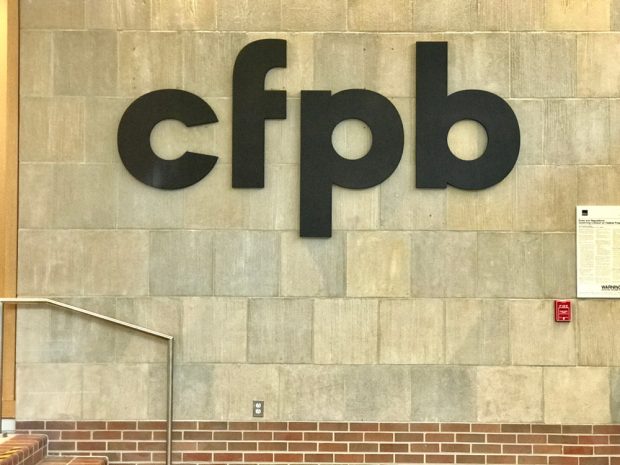 CFPB headquarters. (Source: Shutterstock)
CFPB headquarters. (Source: Shutterstock)
Since early February, officials with CUNA and NAFCU have raised alarms over a proposal by the CFPB to "curb excessive credit card late fees." As Wednesday's deadline approaches for public comments on the proposal, credit union leaders said they are finalizing their official comment letters objecting to the bureau's "unnecessary" move to change credit card fee structures in a way that could severely damage credit unions, especially the smaller lenders.
Details of the CFPB's proposed rule include the following:
- Lower the immunity provision dollar amount for late fees to $8 (this amount is down from $30 for a first-time late payment and $41 for subsequent late payments).
- End the automatic annual inflation adjustment.
- Cap late fees at 25% of the required minimum payment.
During a Monday morning call, CUNA Deputy Chief Advocacy Officer and Managing Counsel Alexander Monterrubio reemphasized that what the CFPB is proposing "is a pretty significant change."
Recommended For You
He said CUNA is asking the CFPB for an extension on the comment period to 45 days.
"We'll be filing our letter on Wednesday where we will outline several objections to the proposed rule. In particular, that it's been unnecessarily rushed – there was only a 30-day comment period on this proposed rule, which will have a significant impact," Monterrubio said. "It's really unjustified by the data that is cited and the lack of data that has been cited by the CFPB. And then there have been insufficient considerations for small issuers, in particular a lack of a Small Business Review Panel ahead of the proposed rule."
NAFCU Vice President of Regulatory Affairs Ann Petros said her team has been working hard since February's proposed rule was announced to gather data and comments to support their view, like CUNA's, that there's no need for the CFPB to change the credit card late fee structure.
"We've received a lot of feedback from members and we will be submitting our comments on the May 3rd deadline," Petros said. "Generally, the current safe harbor limits and other requirements related to credit card late fees are always clearly disclosed to consumers to allow for comparison shopping. These are not surprise fees. These are not junk fees as the CFPB has been characterizing them. We think that the current safe harbor limits are appropriate and should continue to be tied to annual inflation adjustments and should be maintained at their current levels."
The CFPB's proposed rule has appeared to galvanize officials from banks and credit unions to push back on the bureau together.
In a joint-letter to the CFPB in March, officials with NAFCU, CUNA, the American Bankers Association, the Bank Policy Institute and the Consumer Bankers Association called on the CFPB to release the data being used by the bureau to formulate its credit card late fee proposal.
"Yet the Bureau has not released to the public the underlying data and empirical analysis on which the Bureau relies. The Associations understand that releasing the Y-14M data and other data on which the Bureau has relied may raise confidentiality concerns; accordingly, we request only that the Bureau release such data in a manner that is anonymized and/or aggregated to the extent necessary to protect confidential bank information. Without this information, it is virtually impossible to understand or replicate the analysis in any meaningful way, significantly hindering the public's ability to provide thoughtful input," the letter read.
Full details of the groups' opposition comments to the CFPB will be released Wednesday.
© Touchpoint Markets, All Rights Reserved. Request academic re-use from www.copyright.com. All other uses, submit a request to [email protected]. For more inforrmation visit Asset & Logo Licensing.







